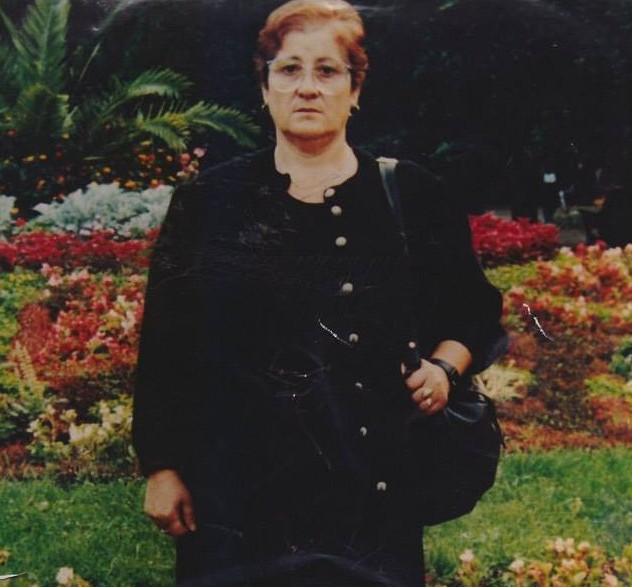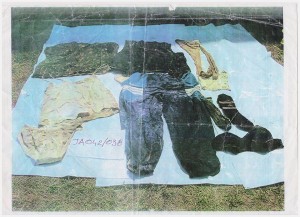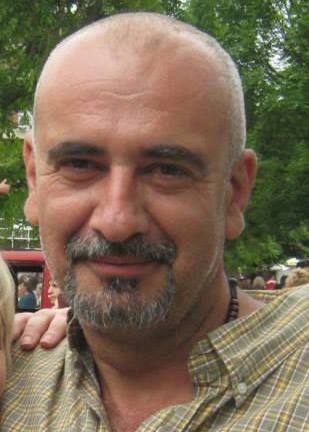
Dragan’s mother was abducted and killed in the immediate aftermath of the armed conflict in Kosovo in 1999. Her killers have still not been brought to justice.
My name is Dragan Piljević. I was born in Pristina, in Kosovo and Metohija. I am 46 years old. I used to believe in God, in good, in justice. On 28 June 1999, I lost a lot of my belief. On that day, I was left without my mother.
Albanians in Pristina abducted her. This was all I could find out, but whether she was still alive somewhere, suffering, I did not know. I went to seek help everywhere: from embassies, churches, political parties, anywhere people would listen to me – but nobody could help. I received an answer a year later – a cruel and unshakable one. In photographs taken of clothing found in mass graves I recognized my mother’s clothes. This is how I found she had been killed. I was handed over her remains on 16 August 2011, in an ordinary refuse sack.

Back then, every day we heard that someone had been abducted, murdered, raped. Only days before my mother was taken, she told me on the phone that she saw from her window armed men stabbing a woman from the neighbouring building. I wasn’t there at that time, but I moved my family, my pregnant wife and our son to my wife’s relatives in Serbia.
I was worried for my mother, constantly reminding her to take care and trying to persuade her to leave as well. But she didn’t want to. She told me it was her home and she had nothing to fear as she didn’t do any harm to anybody. Today, after 15 years, I regret that I let her stay and did not bring her with us. But I thought, if she wants to stay, let her stay – who would hurt her, an old pensioner suffering with a tumour?
I was very close to my mother and I could tell her everything. She could be strict but with me she was kind, and she was brave too. The neighbours told me she did not let a scream leave her mouth when she was taken, even when the perpetrators pushed her down the stairs and into a car, with a gun held at her back. Another neighbour, Zoran Djosic, tried to help and protect her – but he was also taken away.
In the official report it said that the body of Petrija Piljević was found in the mass grave on Dragodan hill in Pristina, and that two shots on the body could be confirmed: one in the chest and one in the stomach. How can I describe that pain, the feeling of falling into small pieces? I consoled myself by thinking that they killed her immediately after abducting her, and did not torture her for long. I have been waiting for the criminals to be prosecuted ever since. Yet until this day, nobody has been held accountable.
During the first years following the war, the NATO-led peacekeeping force (Kosovo Force, or KFOR) and the United Nations Interim Administration Mission in Kosovo (UNMIK) dealt with the cases of abducted and murdered Serbs. I complained many times, but the investigations into her abduction were abandoned. During all this time, I was suffering. I felt powerless and in anguish. I was haunted by the image of my mother, looking at me from the door of her apartment, the last time I saw her.
The only friendly support I received was from Amnesty International, which put pressure on the institutions and was interested in my problem. I received hundreds of solidarity letters from members of Amnesty, saying to hold out, to not lose hope. These messages keep me aware that I am not alone and that justice, after all, may still be served. Thank you Amnesty!

Fifteen years after the end of the international armed conflict in Kosovo, around 1,700 people are still missing. Amnesty is urging authorities in Serbia and Kosovo to carry out independent and effective investigations into those suspected of enforced disappearances and abductions committed before, during and after the conflict.
Read Amnesty’s public statement – Serbia/Kosovo: Time to fulfil the right to truth, justice and reparation for victims of enforced disappearances and abductions.

